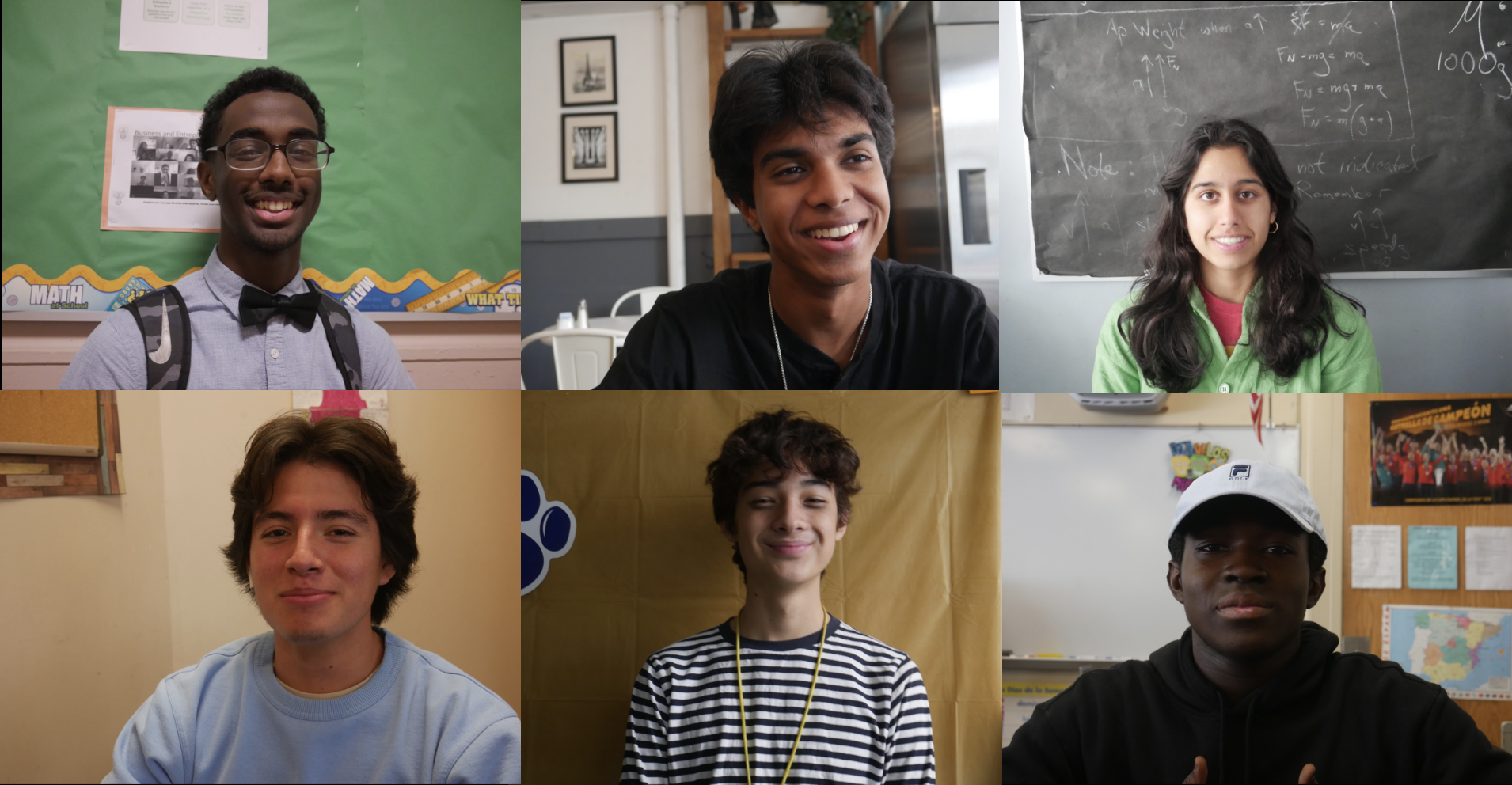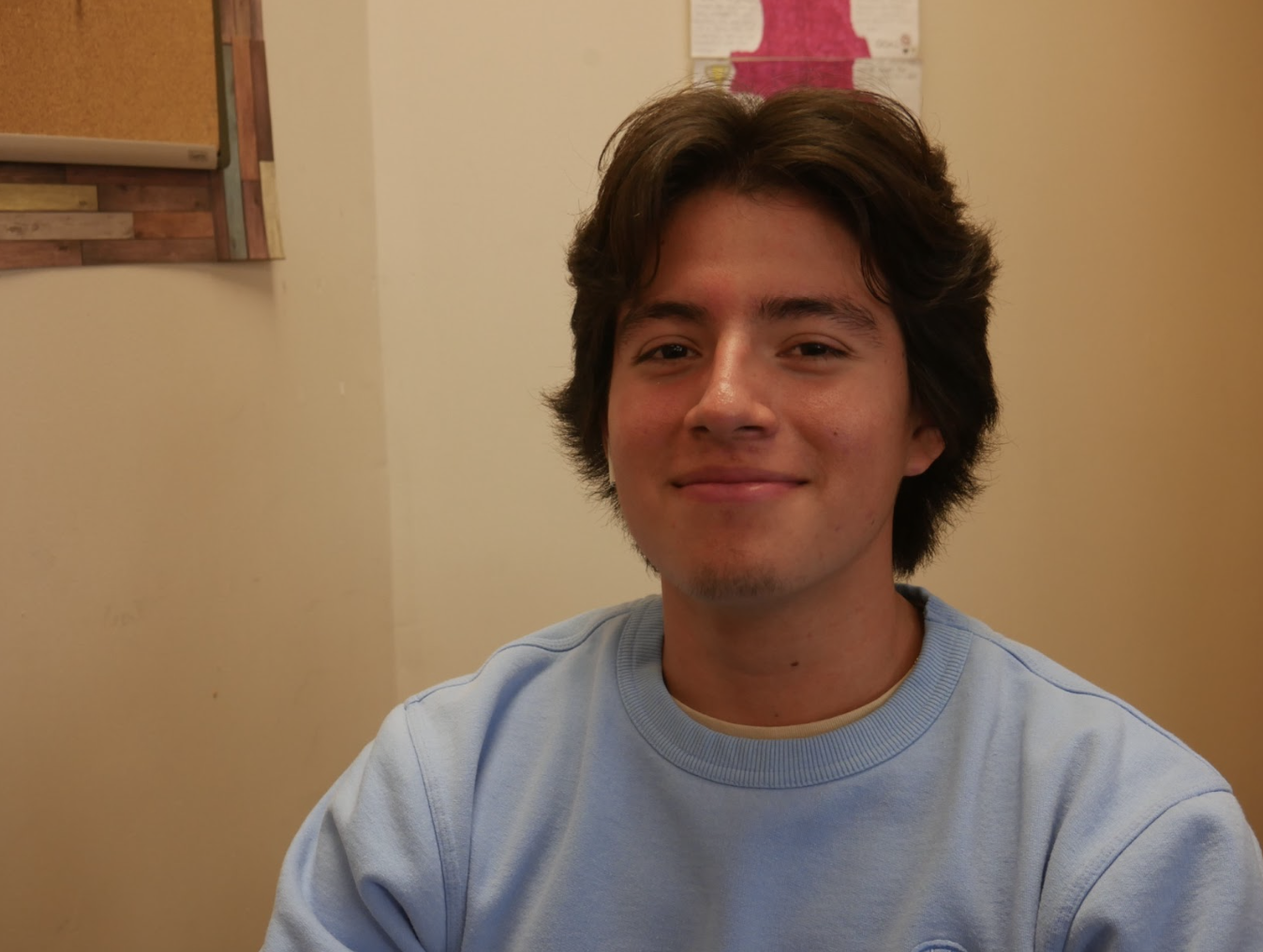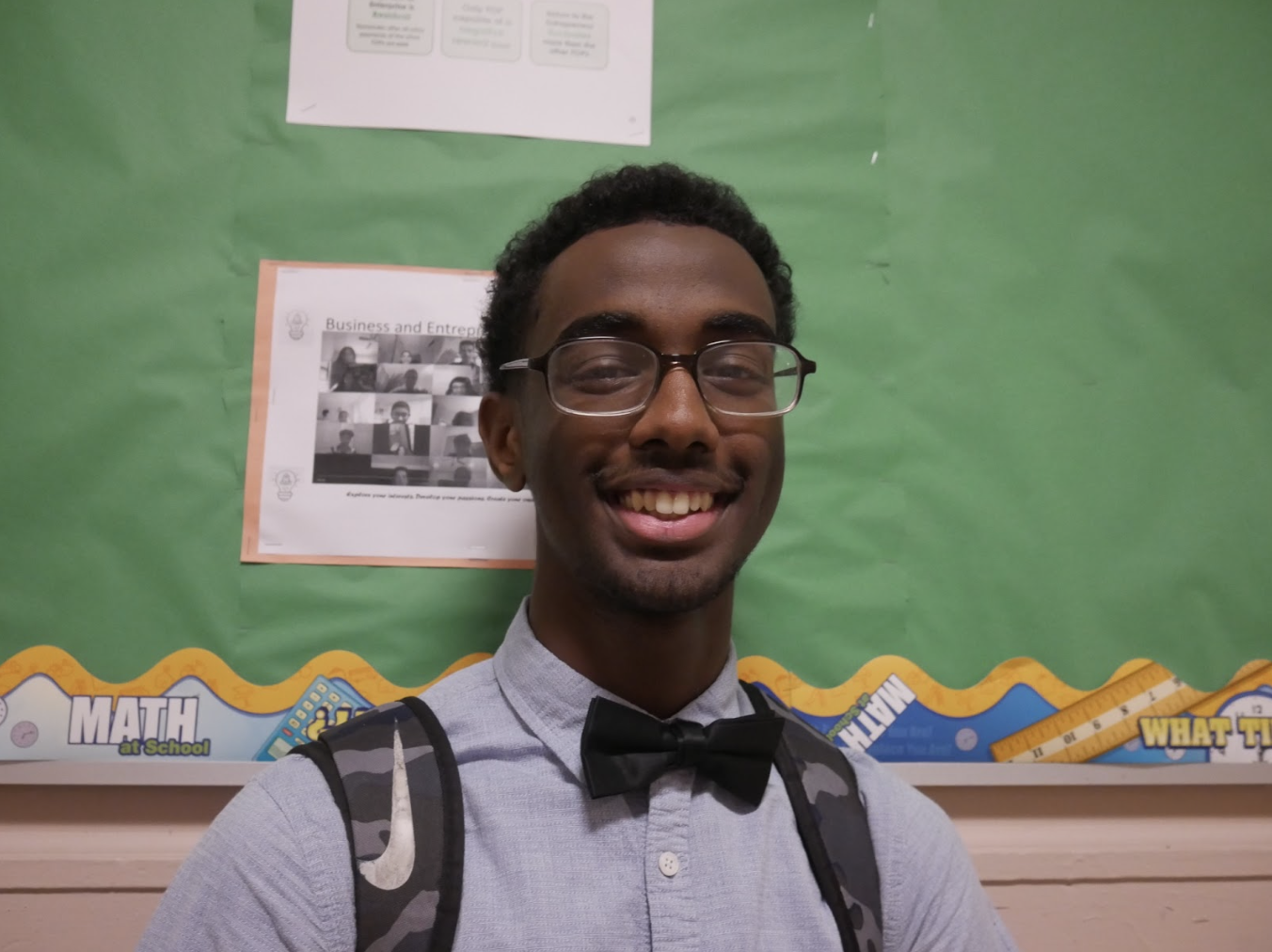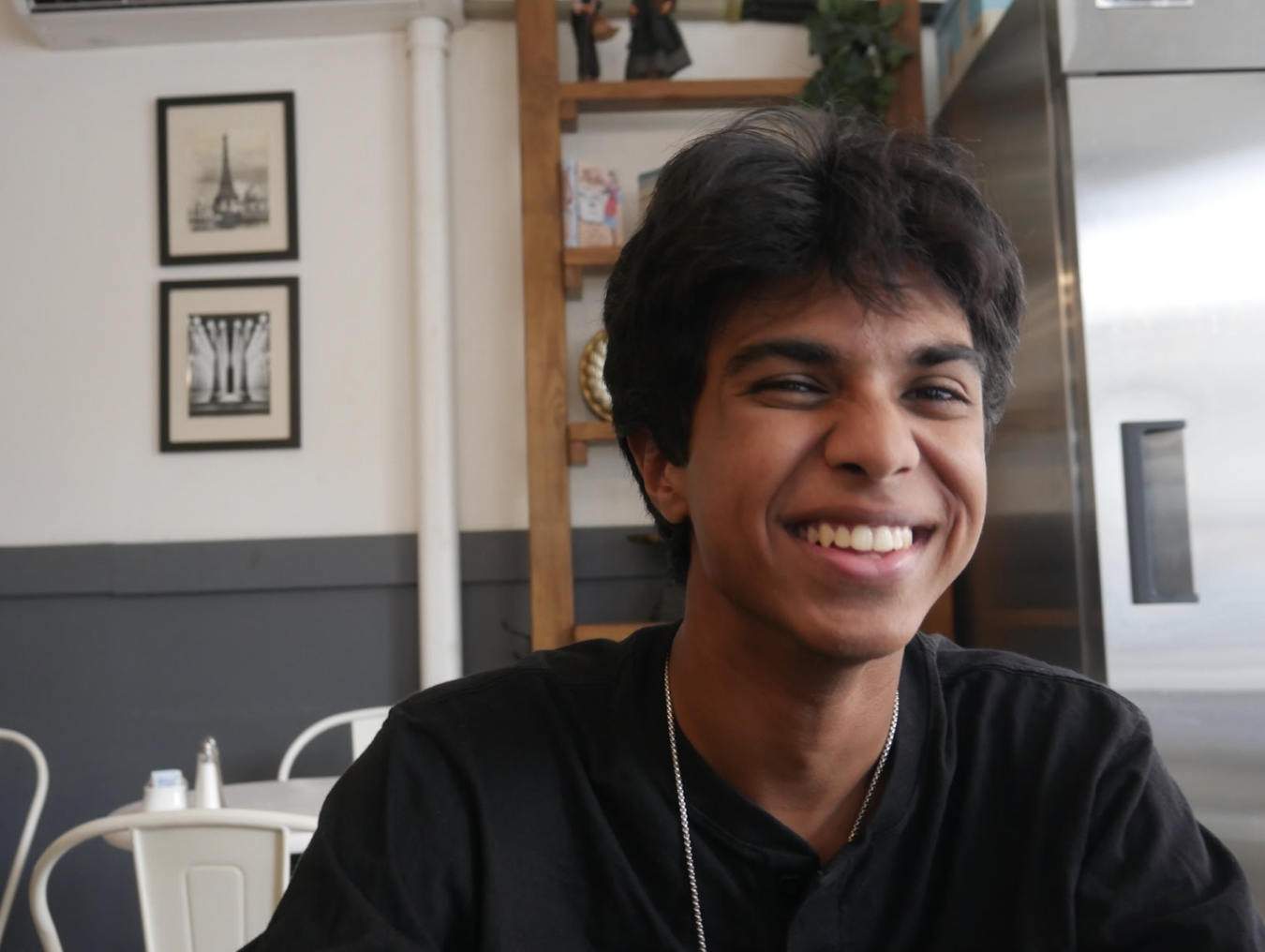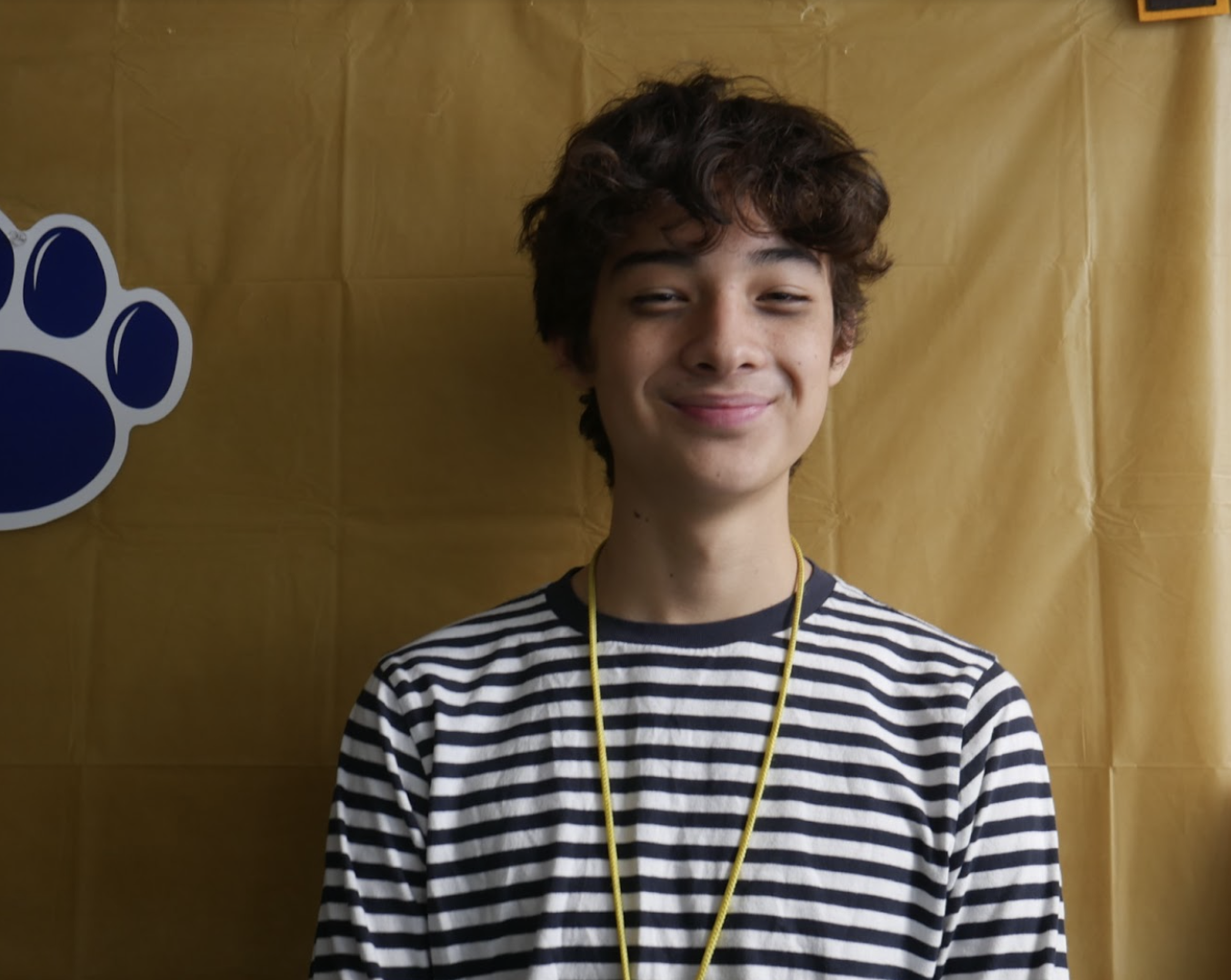As Election Day approaches, Jersey City high schoolers have something to say
High schoolers from Jersey City—Ahmed Omer, Amit Puran, Rania Dadlani, Erick Echeverria, Richard Paget and Yaw Asante—shared their thoughts on voting and elections with Public Square Amplified Community Reporter Zoe Van Gelder. (Zoe Van Gelder for Public Square Amplified)
Will young New Jersey voters cast ballots in the midterms on Tuesday? If recent elections are the measure, the answer is a resounding “Yes.” According to the Center for Information & Research on Civil Learning and Engagement (CIRCLE) at Tufts University, the number of young voters in New Jersey between 18 and 24 grew 16 percent in the last four years. In 2020, the state had the highest youth voter turnout in the country—an impressive 67%. Nationwide, half of Americans between the ages of 18 and 29 voted in the 2020 general election, “one of the highest youth voting rates in recent history and an 11-point increase from 2016,” according to CIRCLE. Racially diverse states can impact voting. In New Jersey, one of the most diverse states in the country, Latinos are 19% of eligible young voters and Black youth are 17%. “Young people, ages 18-19, who have reached voting age since the 2020 election, include 4.5 million white youth and 3.8 million youth of color,” according to the survey. Issues important to young voters are inflation, abortion, protecting democracy and climate change.
As encouraging as the spike in youth voting is, there is reason for concern that interest in the electoral process by young voters could wane. The CIRCLE poll found that among young people newly aged into the electorate (ages 18-19), the number of registered youth nationwide is down 5% and most states lag far behind their 2018 numbers. Yet, Black and Latino youth are more likely than white youth to say they belong to a group or movement that would vote to express their views. While these numbers seem to paint a complex picture of where the youth stand, young people increasingly believe they can work together to effect social and political change. And recent polling conducted by Harvard’s Kennedy School found growing skepticism among young voters about the value of their participation in the election process. The Harvard study found:
The percentage of youth agreeing that “political involvement rarely has any tangible results” has risen from 22% in 2018 to 36% in 2022.
Agreement with the statement “I don’t believe my vote will make a real difference,” increased from 31% in 2018 to 42% in 2022.
Agreement that “politics today are no longer able to meet the challenges our country is facing,” increased from 45% in 2018 to 56% in 2022.
Public Square Amplified Community Reporter Zoe Van Gelder asked a group of young people from her Jersey City school—all of whom will soon be eligible to vote—for their thoughts about the current political landscape and their views on the importance of voting. Here is what they said:
Erick Echeverria is 16 years old. Born in Ecuador, he has been a resident of Jersey City for over 10 years. (Zoe Van Gelder for Public Square Amplified)
Zoe Van Gelder: What does voting mean to you?
Erick Echeverria: I think that everyone has a choice when it comes to whether they want to vote or not. But although it's their choice to not vote, it makes me frustrated (when they choose not to) because they have the chance to be properly represented by their politicians, while I don’t. It’s hard having to sit back and watch other people skip out on making our country a better place for all of us. It feels like such a waste.
What can society do to engage younger people to vote?
Honestly, I’m not really sure. I think it’s one of those things that needs to come from our parents or our schools. We need to be taught when we’re young that voting is something special, without it being made boring. Like, we need someone there to say that this is a right, not just politics.
Ahmed Omer is 17 years old and of Sudanese descent. (Zoe Van Gelder for Public Square Amplified)
Zoe Van Gelder: What does voting mean to you?
Ahmed Omer: I think the way we’re able to vote sets us apart from other countries because it makes us the most represented. Like even though not everyone agrees in politics, at least you can always have a voice. And that should mean something. So when I see people or I know people who can vote and don’t do it, I think it’s like giving up your voice.
What can society do to engage younger people to vote?
I feel like if we show younger people that it's all about having a voice, and that you can use it to help make this country how you want it to be, then they’ll care more.
Rania Dadlani is of Indian descent and 16 years old. (Zoe Van Gelder for Public Square Amplified)
Zoe Van Gelder: What does voting mean to you?
Rania Dadlani: I see voting as a segway to change. I think my generation is especially known for complaining, but I think we need to realize that action will not happen without a push. Voting is that push we need to give to people in power to make change happen. I think most people think that change can’t really start with one person. And I think that’s true on a national scale, but if we start locally, a lot of things can be changed with even just tens of votes. Our everyday issues are voted on and missing out on that opportunity is a waste of your voice.
What can society do to engage younger people to vote?
I think we as a society should focus more on outreach and communicating the change that can happen with every vote we cast.
Amit Puran is 17 years old and a first-generation Guyanese immigrant. (Zoe Van Gelder for Public Square Amplified)
Zoe Van Gelder: What does voting mean to you?
Amit Puran: I think the popular idea is that voting gives the people a voice, and I agree with this. And if it were up to me, I would lower the voting age. I do get it, being 18 is the accepted age when a person can make more rational choices, but it seems like our generation is more educated, probably because of social media. I think that anyone who doesn't take advantage of the ability to vote must either not mind going with the flow, or has given up their say to society. Nowadays, though, I just don’t understand why people end up complaining when a decision is made that they had the power to change.
What can society do to engage younger people to vote?
I feel like a lot of teens seem to undermine the idea of having a voice in politics. I’m not sure what society can do at this point, since we’re mostly educating ourselves at this point.
Yaw Asante is Ghanaian and 16 years old. (Zoe Van Gelder for Public Square Amplified)
Zoe Van Gelder: What does voting mean to you? Both in general, and as someone who is currently not old enough to vote?
Yaw Asante: Honestly, I don’t think too highly of voting only because I think it’s meant to give the people a say, but I feel like it’s failed to do so. Like, children who are paying taxes, working, and experiencing the repercussions of an election they can’t vote in. Maybe when I can vote my opinion will change, but as of right now voting is just something I can’t do. Whenever I see people that can vote, not vote, it makes me feel cheated in a way. Only because I feel like every vote counts, so the people who choose not to vote could be the difference between having a good or bad person in power.
What can society do to engage younger people to vote?
I think most young people don’t vote because they don’t think it really matters, so if there was some way to show people the number of nonvoters it might open everyone’s eyes to what might happen if we all participated.
Richard Paget is Korean and 16 years old. (Zoe Van Gelder for Public Square Amplified)
Zoe Van Gelder: What does voting mean to you? Both in general, and as someone who is currently not old enough to vote?
Richard Paget: To me, voting means having a voice in politics even when I’m not a politician. It’s special that we have the ability to choose who we want in America because it's a way for the masses to participate in government decisions, even if it's more indirectly. I’m confused [when people don’t vote] because why would someone not choose to participate in a democracy, especially when voting is a privilege because of other autocracies.
What can society do to engage younger people to vote?
I think for the youth, we can become more engaged if we develop habits of watching the news and elections, but I think we need our families to encourage us. I personally am not well-versed in politics because it just feels like too much time, but if I had a push, things might be different.

